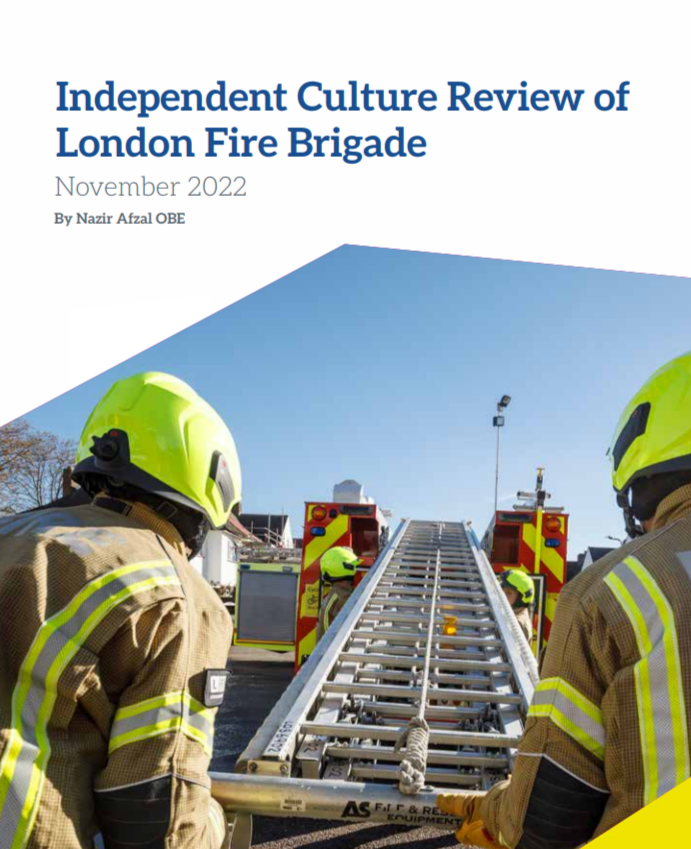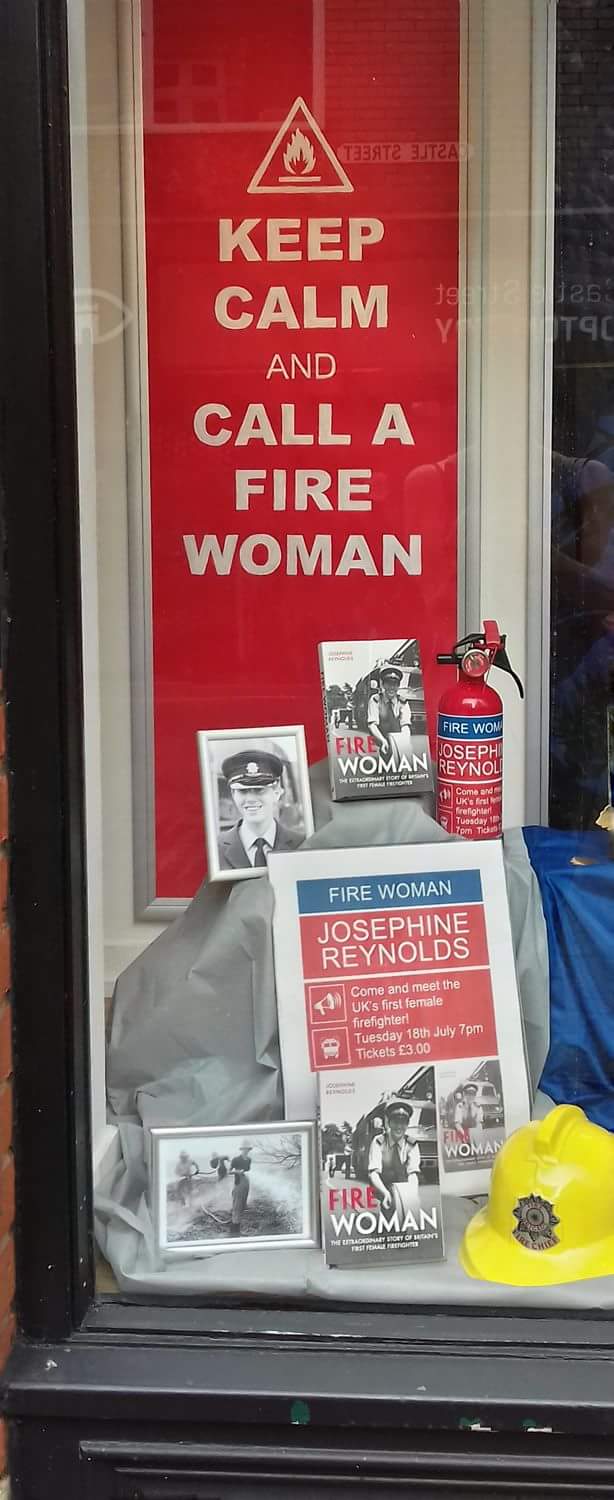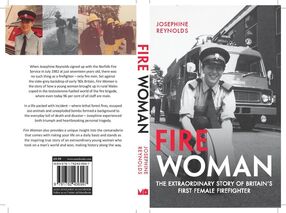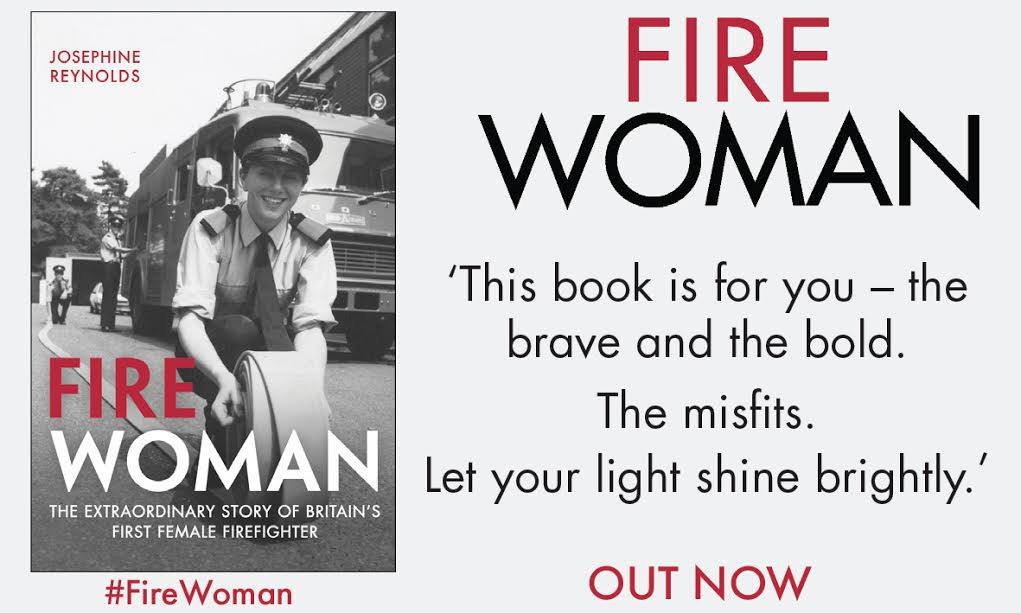 The review is in a PDF form - just follow the link in the article. It's worth taking some time to absorb the information. FIREWOMAN #inclusion #ethics #LFB #CulturalReview
0 Comments
"One year later: ‘Fire Woman’, Josephine ReynoldsA lingering issue with women in the fire serviceLast year, Josephine Reynolds, the Uk’s first female firefighter, blessed us with an exclusive interview and gave us some very interesting insight into her career in the 80’s, the barriers she faced as a woman in a predominantly male industry, and how FR clothing was (possibly amusingly) inadequate back in her days of service. We were lucky enough to speak with her again, and engaged in conversation that looked into lingering issues that women in the fire service face still today, issues that will resonate with women across many of the sectors that we cater for at Alsico. Read our article below which delves into Jo’s experiences and her work to advocate for more females in male dominated industries. It also touches upon the importance of support from fellow male employees, to once and for all stamp out unwelcome and damaging gender stereotypes in such environments. Meet Jo-Voted one of EDP Norfolk's 100 most Inspiring Women 2020, Josephine Reynolds was considered by many the first ever female firefighter in the UK. At just 17 years old, Jo put herself forward for a junior training course to join the Norfolk Fire Service, facing a tidal wave of scrutinous publicity and grumbles from sceptical locals. We’ve had the pleasure of speaking with Jo a couple of times over the past year, talking in depth about her trials in the testosterone-fuelled world of the fire brigade. In 1982, the Norfolk Fire Service opened their applications to women for the first time ever. There were just 6 applicants and Jo was the only female to turn up. In our first interview with us, Jo laughed and claimed she hadn't been savvy to the potential backlash she might receive. "Honestly, I was just desperate for a job, I didn't really know what a firefighter was," she said. Her naivety entering the role was, in hindsight, a blessing. It gave her that nonchalant attitude that was integral to her success. She didn't even consider the fact that no women had been part of the brigade before, until the day she turned up to a wave of frantic reporters with flashing cameras. Whilst some members of the public were muttering about her incapabilities as a woman, others were cheering her on as an engine for social change. Jo was received with a mixture of attitudes throughout Norfolk, but most of the negative ones, according to her, came from senior fire servicemen in other stations. In one of her first interviews for the job, the Fire Chief asked her, "How can you be sure that you’re going to be safe among the men?’ In our own talks with Jo, she said that her boss was far more encouraging, telling her to ‘enjoy her job’ and said ‘you don’t have to prove anything here." An old colleague of Jo’s reflected on his time with Jo: "I thought it was a waste of time training you and that you were only there for the publicity! Myself and a lot of others thought it was nothing more than a publicity stunt, and that it certainly wasn't a job for a woman, let alone a little girl." (Mr S.S) Mr S.S followed years later by saying, "life back then was much more sexist than it is now. I have changed and the world has changed since then, and [Jo has] more than achieved [her] goals." Telling her storyIt wasn’t until years after Jo had retired, whilst she was travelling in Thailand, that Jo decided to write a book. Being the equable person she is, Jo hadn’t really considered telling her story before. When we asked her why she decided to collate her experiences into a book, she admitted it was a good friend of theirs, Paul Moody, that encouraged her to take the leap. Moody happened to be a successful music journalist for the likes of NME and GQ and knew the publishing industry well. Speaking to Jo, she said ‘it was only made possible with collaboration through someone like him, he’s a natural storyteller - A real rock and roll writer who gets your attention.’ Jo described publishing as ‘a bit of a dark art’ and said that even with the help of her friend Moody, who had ample experience and contacts across the globe, it still took them 4 years for a publishing house to say yes! ‘Then we had no time at all’, she said, ‘It was pitching pitching pitching, then go. 9 months to complete the book once we got our contract.’ And so, 9 months later, 'Fire Woman' was born. Inspiring young womenThe first time we met Jo over a year ago, we asked her why she enrolled into the Norfolk Fire Service, her answer was fairly undramatic. In her casual manner she told us how she’d craved independence from her parents and that it was just a job that she thought she could do well and get paid for. But her book digs a little deeper than that... In the first sentence 'Fire Woman' reveals when she was little her house burnt to the ground. She alludes to the 'rugged strangers' who came to their aid in the night, crowning them 'silent superheroes'. This experience undoubtedly sparked an unconscious admiration within Jo for the fire service and their heroic duties. That night 'something inside [her] had changed.' (Fire Woman) Now, having been retired for over 10 years, Jo makes it her mission to inspire young women across the globe to get involved in fire fighting as a profession. From her extensive travels and generous outreach, Jo has gathered an active community of followers that have joined the conversation of females in the fire brigade. Jo loved her job in the Norfolk Fire Service and often mentions in our conversations how exhilarating and diverse her day to day role was, which, she added, wasn't what a lot of people would expect. That’s one reason, Jo said, that often comes up during her talks in schools, as to why young girls wouldn't consider the fire service as a possible career. She said, "It’s not understanding what one might need to be a firefighter. There is a misconception about the actual work firefighters do now. Mostly it's community related - less BIG fire and crashes - and more being out and about, visiting people etc. Women tend to do this very well, and can train to make sure that they are fit enough for the very physical side of things." Another issue is that there are next to no visible role models, or at least there weren't when Jo was a child. Jo raises that today younger children are still not exposed to females in male dominated professions enough and that we are still very much limited by a rigid discourse of gender and the personal attributes we assign to them. As a culture, we buy young boys trains and firetrucks and we buy our girls' dolls and prams. We precondition our young people before they can even walk or talk. So maybe, women not being ‘able’ to participate, is in fact rather, women don’t’ participate because as a society we have drummed it into them from a young age that women 'just don’t do those sorts of jobs'. This is why we at Alsico, are so impressed by Jo’s almost aloof approach to breaking down such a massive barrier for women in the 80’s! Jo’s sometimes 'spiky' character as she called it, and her free spirited outlook on life, had naturally steered her into (unbeknown to her at the time) a career that would pave the way for other women across the world, a world where she has become the role model our young women need to see. Jo told us a story of a little girl she had met at a school whilst doing a motivational talk, whose parents had told her firmly that girls categorically can’t be fire-fighters. "She nearly died with joy when I said, actually, yes they can. You can do anything you want to." And for Jo that’s what it’s all about. "The other guys stayed quiet…"The fire service is still 96% male (Fire Woman). It can often feel like we’re moving mountains when we hear of inspiring stories like Jo’s, but there’s still a long way to go. Sinister and covert barriers are still obstructing women from traditionally male professions, and what’s even more concerning, is that when inequality is brought out into light, in most cases it retreats back into the shadows where it continues to feed, unphased and resilient as ever. But why is that? We need male allies…Jo breaks it down for us. She brought a 2021 news story to our attention that had been reported by the Red Canary Collective. The article is called Golliath and Holly and investigates how small-town firefighter Holly Van Schaick spoke out against workplace bullying to be met with some disappointingly manipulative treatment directly from the union she seeked support from. Holly reported in the article that she suffered, 'constant disparaging remarks about her body, and [was] told she didn’t belong.' One Captain also 'expressed disappointment when she got through a rigorous physical test known to be challenging for men as well as women.'(Red Canary Collective) Holly writes, "I should have been able to be proud of myself. Instead, a small number of men treated me as a pariah and the other guys stayed quiet. They were afraid – they didn’t want the social discomfort of standing up for me." (Red Canary Collective) Holly goes on to report physical abuse from her captain, her gender being the focus of the mistreatment. Read the full article for details. After she had reported the events to the union, Van Schaick says, a senior union official called her on her cell phone and spent several minutes chewing her out for causing trouble. Holly said, "He told me, women like me are the problem, and good men [...] don’t deserve to have problems in their careers." (Red Canary Collective) This was only last year… Holly’s case, along with many others, is a stark reminder that mistreatment towards women in this industry still happens now, and when you pull back the layers and listen to the chorus of exhausted female voices with stories of mistreatment, we realise that there is far more work to be done. Inspiring women is one thing, but inspiring men to stick up for women, especially in these contexts, is another, and is a crucial factor in finally changing attitudes for the better. Are you strong enough?Our women who brave the brigade face a lot of pressure and concern about their strength. Jo was asked many times in her early years "are you strong enough?"..."How are you going to give a grown man a fireman's lift?" In a LadBible TV interview series called The Gap Jo met with 24 year old firefighter Alice Williams, where they compared their experiences. Jo asked Alice what she thought the biggest misconceptions about women in the fire service were today? This is how Alice Responded: "I think the main [misconception] is strength… that we’re not as strong as the men, which biologically we’re not, physically it’s harder for us to build up that strength. The misconception that we can’t do it because of that, always winds me up… Men are assumed they can do it, and women are assumed that they can’t, so we have to prove ourselves again and again and again." Alice’s comment resonates with the first conversation we had with Jo, where we spoke about her passing out parade. We asked her what she had been most proud of and she told us, "Looking back, just getting through the course and getting to the passing out parade. Especially with all the press watching me and all sorts of other people. Proving that I did belong, you know? It was always in my mind what if I failed? They would never have encouraged women back would they?" Thank you to Alisco for this article. If you would like to buy a copy of Fire Woman please follow the link below
https://www.amazon.co.uk/Fire-Woman-Extraordinary-Britains-Firefighter/dp/1782436995
#FIREWOMAN #culture #sexism #firefighter #firstukfemalefirefighter #Aliscoworkwear #interview #journalism #culture #fireservice #Fireengine #frontline #challengingstereotypes #thisgirlcan #seeitbeit #socialissues |
AuthorGutsy Girls, may we see them, may we be them! Archives
May 2023
Categories |
|
Contact Us |

 RSS Feed
RSS Feed

